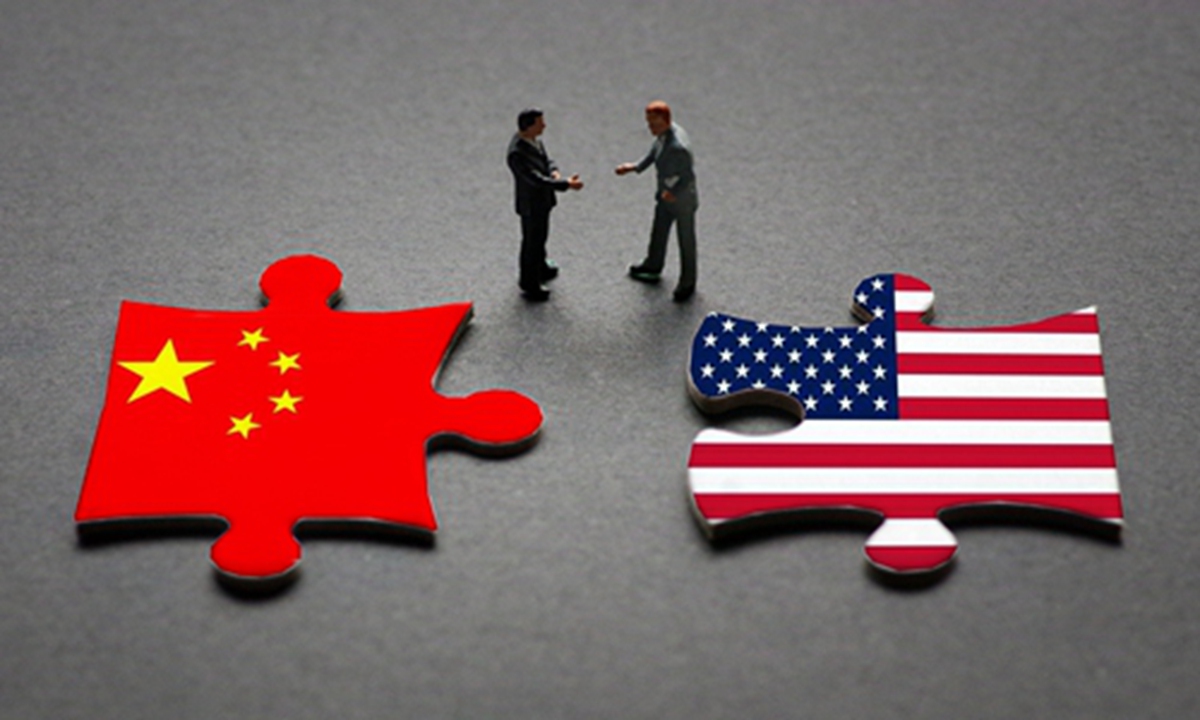
Photo: IC
A global chip supply crunch has lasted for a protracted period of time, holding back the recovery of many industries across the world. The US has also found itself struggling to meet market demand; however, Intel Corp's latest effort trying to address the problem has reportedly been put off by Washington's insistence out of its skewed anti-China mindset.
Intel, the world's largest chipmaker, has proposed using a factory in Chengdu, Southwest China's Sichuan Province, to manufacture silicon wafers. The Biden administration spurned the plan over "security concerns," Bloomberg reported, citing anonymous sources and describing it as "a setback to an idea pitched as a fix for US chip shortages."
The report has yet to be confirmed, but picking a fight with China in the semiconductor arena is clearly lose-lose strategy for both nations, and the negative impact has spilled over to the advanced manufacturing sectors.
As reported by Bloomberg, Intel has stated, "semiconductors are essential to innovation and the economy." It might be the exact reason why the US government is trying to block China's expansion in the area, with its ill intention to stifle China's high-tech innovation and slow down China's high-quality development. However, it is known to all in the world that Washington cannot hold back China's semiconductor industry growth, because the market is located in China.
China is the world's second largest economy and the largest market for semiconductors. The significance of the Chinese market for global chipmakers is clear for all to see, which also indicates that Washington's reckless efforts to rebuild a chip industrial chain without China will be futile.
In fact, a recent Wall Street Journal investigation painted a clear picture showing that various investors from the US and the world "participated in 58 investment deals in China's semiconductor industry from 2017 through 2020, more than double the number from the prior four years," with a conclusion that US companies are "helping the development of Chinese chip industry."
Profit-seeking capital does not discriminate a huge market like China's, and the prevailing logic behind the trend is Chinese chip industry's promising prospect which is essential for global manufacturers.
As an upstream player, the US chip sector simply cannot maintain its advantages by decoupling from the largest semiconductor market which offers a wide range of application scenarios and opportunities to turn tech innovations into profits. Therefore, the US needs to continue to cooperate with China and their companies will get win-win results.
Obviously, it will not be easy for the Biden administration to reverse course amid a toxic political environment in Washington which calls for confrontation with China on almost every topic, as a number of the politicians there simply cannot tolerate to see China progress.
If the US politicians in Washington cannot find a way to do away with their extreme ideology which has caused a seriously fraught relationship between China and the US, cooperation is difficult and will mostly be empty talk.
The US economy is now facing a dilemma with slowing GDP growth, skyrocketing inflation, supply chain chaos and a resurgent pandemic. With few choices left on the table, Washington needs to find an effective new growth point to prevent its economy from collapsing. Now it's time for real cooperation between the world's two largest economies on chips, climate change and other important issues.




